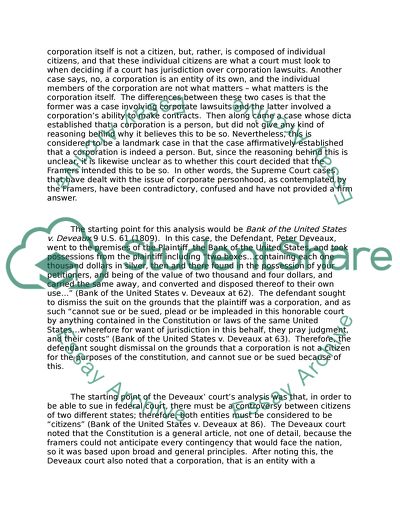Cite this document
(“Did the Framers of the constitution intend that a corporation be Research Paper”, n.d.)
Retrieved from https://studentshare.org/family-consumer-science/1407618-did-the-framers-of-the-constitution-intend-that-a
Retrieved from https://studentshare.org/family-consumer-science/1407618-did-the-framers-of-the-constitution-intend-that-a
(Did the Framers of the Constitution Intend That a Corporation Be Research Paper)
https://studentshare.org/family-consumer-science/1407618-did-the-framers-of-the-constitution-intend-that-a.
https://studentshare.org/family-consumer-science/1407618-did-the-framers-of-the-constitution-intend-that-a.
“Did the Framers of the Constitution Intend That a Corporation Be Research Paper”, n.d. https://studentshare.org/family-consumer-science/1407618-did-the-framers-of-the-constitution-intend-that-a.


